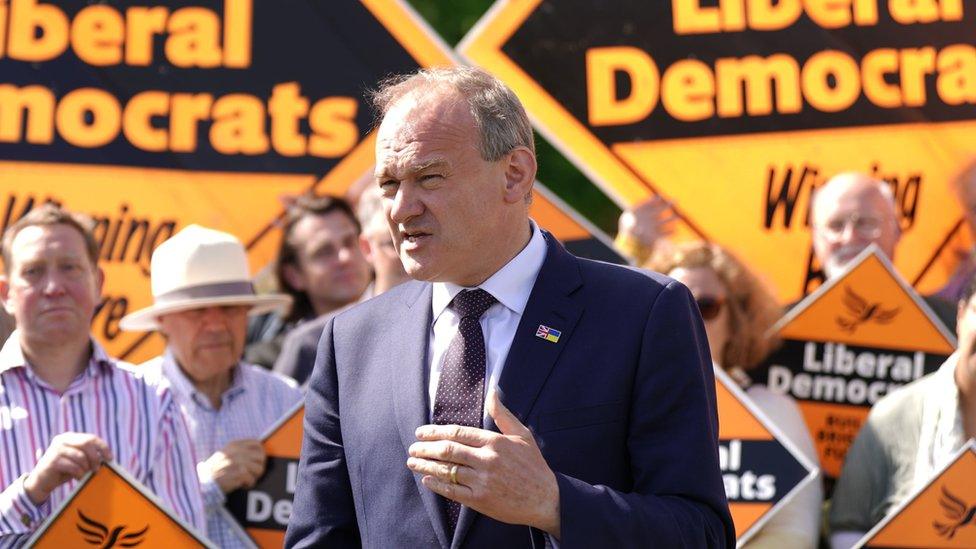Liberal Democrats targeting Tory seats in election fight back
- Published
- comments
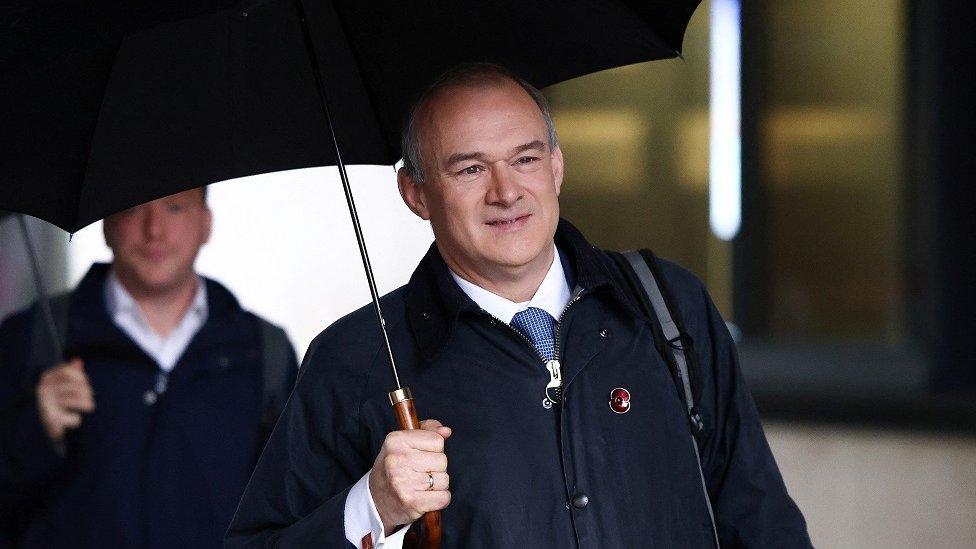
Sir Ed Davey wants to focus on key election battlegrounds
At a conference centre in the Staffordshire countryside, shrouded in freezing fog, a group of Liberal Democrats gathered last weekend to plot their strategy for the next general election.
Candidates were told the party was "now on a general election footing" according to one official present, who said there was "a real buzz" and a "determination to oust Conservatives in commuter belt areas".
The Lib Dems are determined not to repeat the mistakes of the 2019 campaign, which was branded a "high speed car crash" by an internal party review, external.
Sir Ed Davey, who now leads the party, instead wants to make it "the best campaigning power in British politics" with a focus on big domestic policies like the NHS and unseating Conservative MPs.
Central to their strategy is targeting the kind of Tory seats they have been picking up in by-elections in the South of England - the fabled "blue wall".
Party insiders say there will be no more talk of winning a general election outright, seen as one of the mistakes made by former leader Jo Swinson.

Jo Swinson was among the Lib Dem MPs to lose their seat in 2019
Instead, her successor is seeking to position his party as "the main opposition" to the Conservatives in areas where Labour are unlikely to win.
"We can't wait to get stuck in and take the fight to the Conservatives in those key battlegrounds," Sir Ed says.
'It doesn't work that way'
There is support for this strategy among other long-serving Lib Dems, scarred by the failure of previous campaigns.
"Where we have come unstuck in the past is where people have thought we can win 100 or 200 seats and it doesn't work that way," says Layla Moran, the Lib Dem MP for Oxford West and Abingdon.
"It's seat-by-seat and we're very focussed."
Even so, the party is likely to come up against the perennial problem faced by the fourth largest party in the first-past-the-post voting system used at Westminster elections.
"You can't replicate a by-election strategy in every single seat," warns Mark Leftly, former press secretary to ex-leader Sir Vince Cable.
"They've got to focus on those 20 or 30 seats where they've got a good chance of winning."
It's similar to the numbers senior party figures talk about privately.
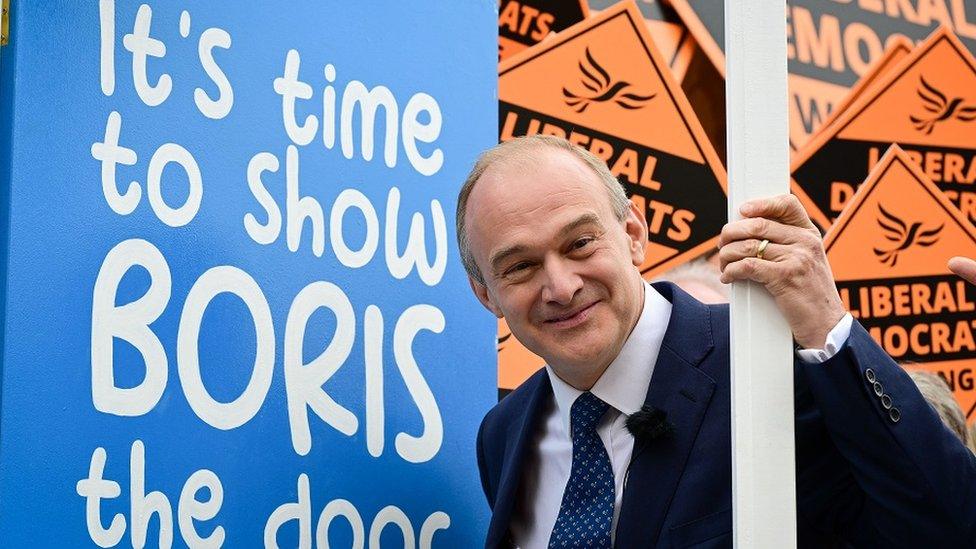
The Lib Dems scored by-election successes by attacking Boris Johnson...
Those seats will be in almost exclusively Conservative-held areas, where the Liberal Democrats came second in 2019 and Labour are unlikely to challenge, such as Wimbledon in south London, Cheltenham and Winchester.
But one factor the Lib Dems relied heavily on in their by-election campaigns was the distaste former Tory voters had for Boris Johnson.
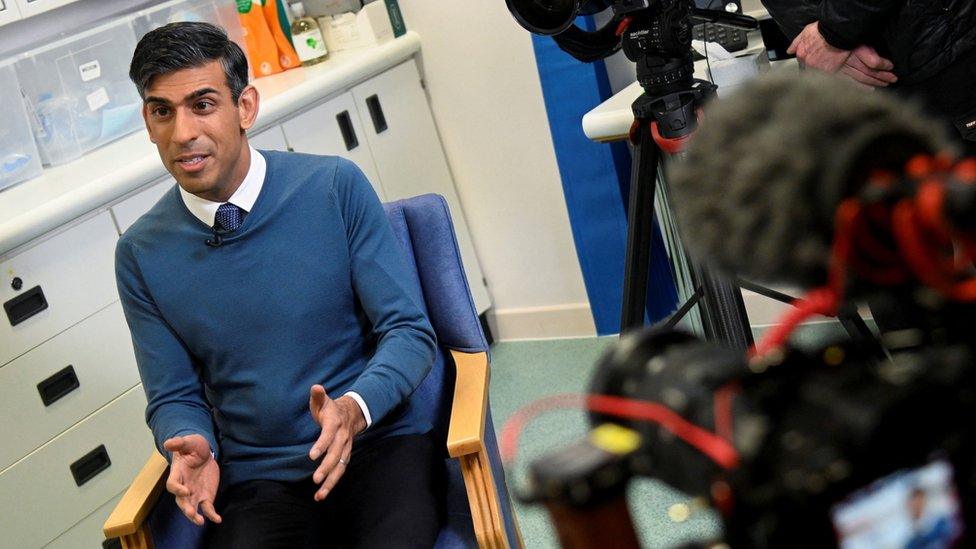
...but Rishi Sunak might be a tougher target
His unconventional style was something "more traditional, middle of the road, Southern voters didn't like," says Sean Kemp, a former Lib Dem special adviser, adding that the current prime minister is "not as naturally divisive".
"Rishi Sunak gives off a more friendly face to those kinds of voters so that I think is a challenge."
Bolder on Brexit?
Having previously adopted the slogan "bollocks to Brexit" and pledged to reverse Britain's exit from the EU, the Lib Dems' current language on Europe is far more moderate.
Some within the party would like it to be bolder, speaking more about what it believes has been lost through Brexit and the prospect of a better deal with the EU.
Former leader Menzies Campbell sees the party's firmly pro-European stance as a selling point.
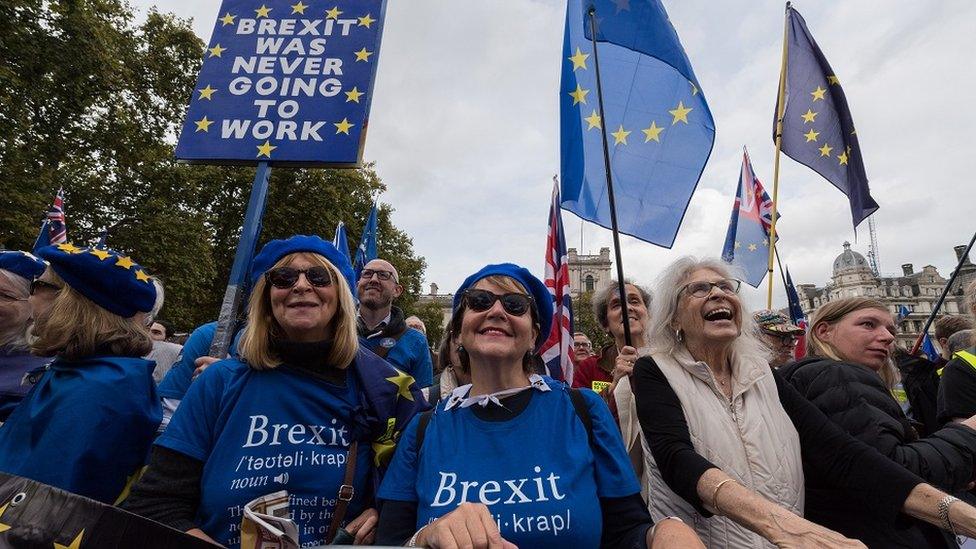
The Lib Dems won't be campaigning to rejoin the EU
"There's no doubt that in defence, security and even the economy, the UK has got to be much more cooperative with the EU.
"It's not a question of rejoining, it's a question of common interests," argues Lord Campbell.
But if Brexit is a subject that Lib Dem MPs rarely raise without prompting these days, what is the party's signature policy - the one thing voters should know about it?
"I'm not going to give away my whole hand," Sir Ed laughs, but says his party's campaign for a legal right to see a GP within seven days is an example of what he calls a "fair deal" which will form the basis of the Lib Dems' manifesto at the next election.
Electoral reform
There will also be a renewed call for electoral reform, in the guise of proportional representation, which retains a "geographical link" between an MP and their constituents.
The recent focus on the NHS and cost of living is welcomed by those in the party frustrated by what they see as its past tendency to talk to itself, rather than to voters.
"You change things through winning elections," argues Lisa Smart, the outgoing chair of the Lib Dems' Federal Communications and Elections committee and parliamentary candidate for Hazel Grove.
The seat is part of a "northern outpost" of blue wall seats targeted by the Lib Dems along with Cheadle in Greater Manchester and Harrogate in North Yorkshire.
She rejects claims the party will struggle to replicate the success of recent by-elections when local issues may not be such a factor.
"You will knock on doors and some people care about national issues very deeply, others care about local issues."
The balance of power
The reluctance to talk about Brexit has given Labour "cover" to stay away from the issue too, argues pollster Sir John Curtice - and left the Lib Dems without an obvious offering to voters.
He predicts an increase in the party's representation at the next general election, but not its influence.
"You can see them getting 20 to 25 seats. They might end up with twice as many MPs but still frankly as peripheral to the system and only the fourth largest party at Westminster as they are at the moment."
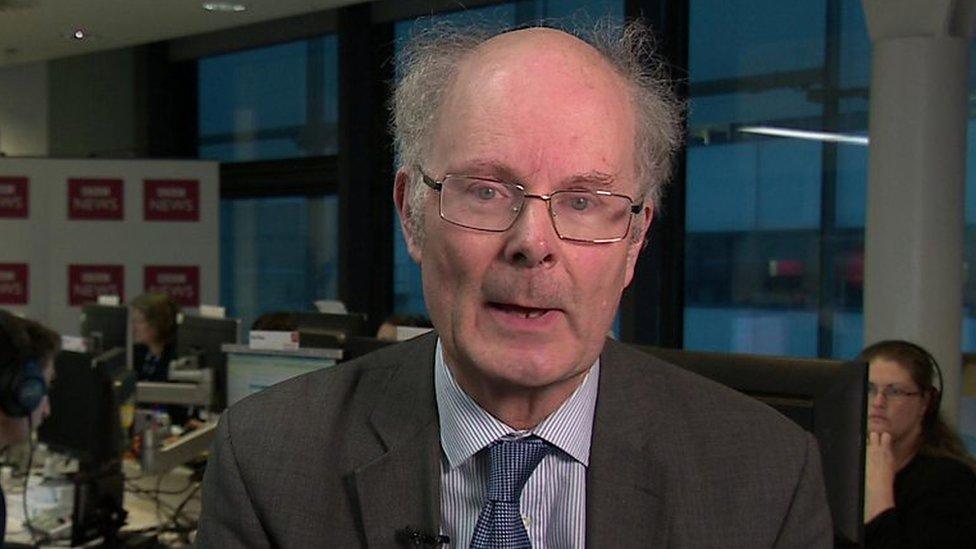
Sir John Curtice says the Lib Dems should not get their hopes up about a hung parliament
He adds: "In the end, the game for the Lib Dems always has to be hoping for a hung parliament in which you potentially have the balance of power.
"But Labour is currently so far ahead in the opinion polls that for the first time they have a realistic prospect of getting an overall majority."
Those Lib Dems who dare to talk about the result of the next general election agree a formal coalition government is out of the question, and Labour leader Sir Keir Starmer has ruled out any "arrangement" with other parties.
Sir Ed Davey is more nuanced about his approach to an informal agreement to support Labour in government.
But to discuss that would be "jumping about 10 different hurdles," he warns, arguing he is focused on unseating Conservative MPs and "the battle after that is another country".
Related topics
- Published5 November 2022
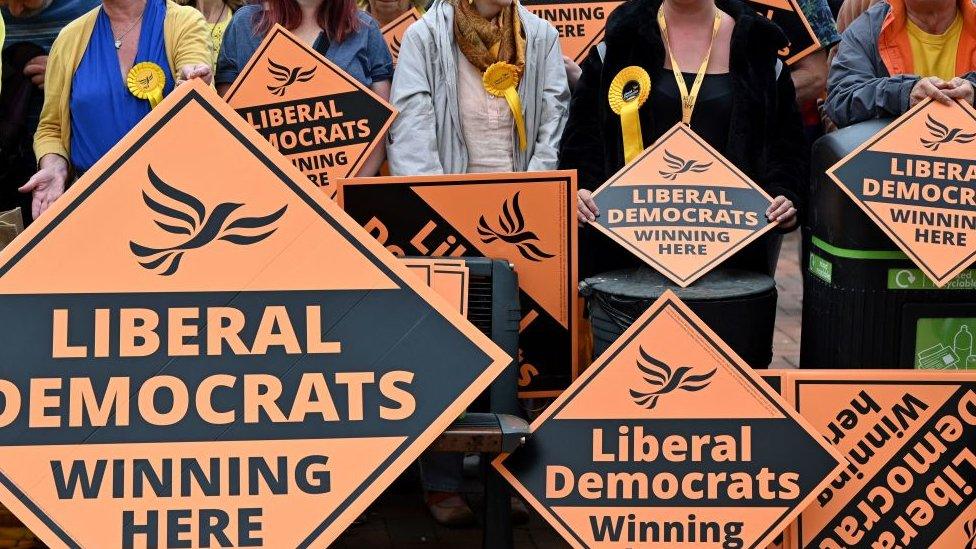
- Published6 November 2022
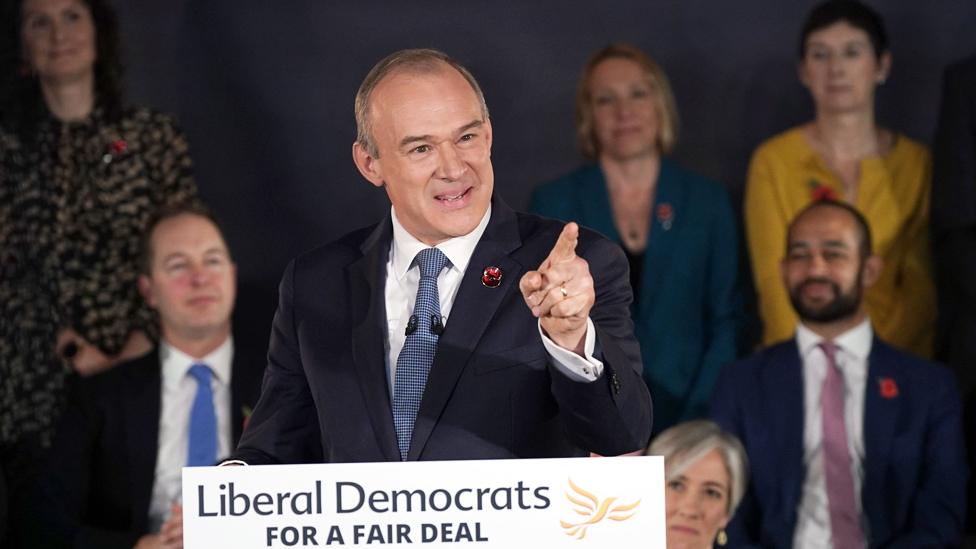
- Published10 September 2022
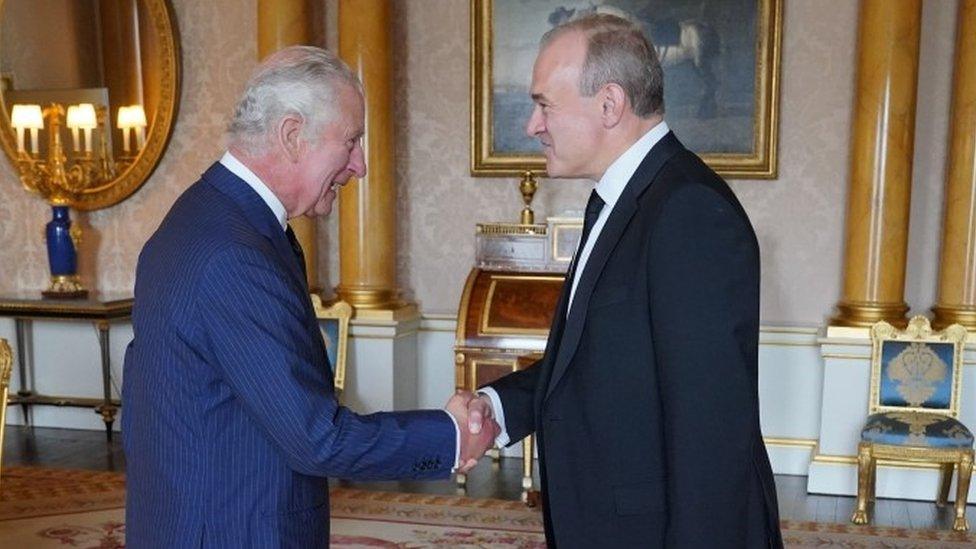
- Published7 May 2022
